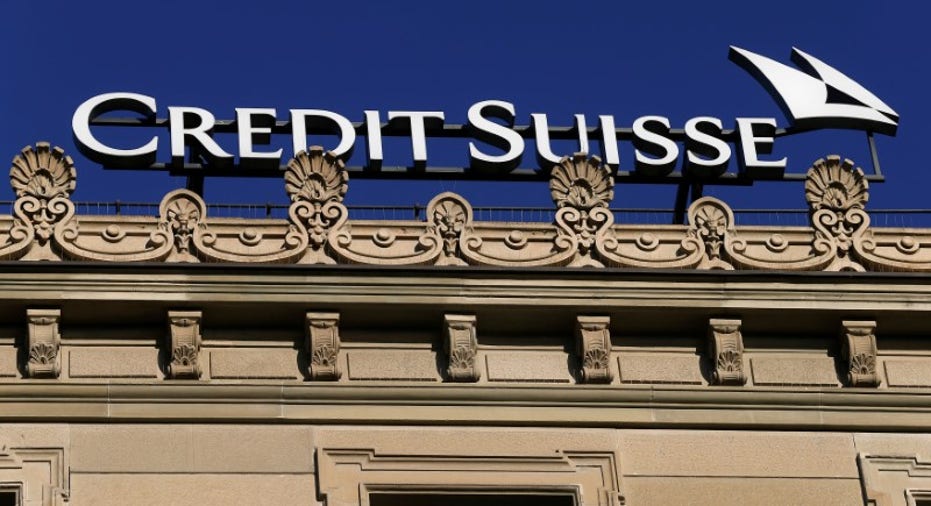Credit Suisse expects more consolidation in Swiss finance sector in 2017

ZURICH – Credit Suisse says it expects more consolidation in the financial sector in Switzerland next year, as smaller local banks look for scale in order to combat rising costs.
Smaller Swiss private banks, which for years benefited from clients bringing money into Switzerland to take advantage of the country's bank secrecy rules, are struggling under a global clampdown on tax evasion and increasing regulatory costs.
Looming fines under a tax agreement between Swiss banks and the U.S. Department of Justice have kept some potential buyers on the sidelines and made some banks unattractive merger targets, but most of the banks involved have now resolved their cases.
"We expect more consolidation in the FIG (Financial Institutions Group) sector, especially wealth management and retail banking," Marco Illy, head of investment banking for Switzerland at Credit Suisse, told Reuters.
"It's a scale thing. The fixed cost base is going up, so you need scale to deal with a higher cost base. Those firms with assets of 20 billion Swiss francs ($21 billion) and below are the most challenged."
The number of private banks in Switzerland is likely to fall to below 100 in the next three to five years from 136 in 2015, a report by consultancy PwC said on Tuesday.
In February, Swiss private bank EFG International announced it would buy rival BSI from Grupo BTG Pactual SA for 1.06 billion Swiss francs ($1.1 billion) to create Switzerland's fifth-biggest wealth manager.
"That could trigger outright consolidation, new business models and digitalization as a way of industrializing the process.��We could see combinations of non-competitively relevant operations which help executing mid and back office processes," Illy said.
Credit Suisse CEO Tidjane Thiam has said that he wants his bank to take part in consolidation in Switzerland, which could be facilitated by the initial public offering of its Swiss Universal Bank, planned by the end of 2017.
Thiam has also said that he is in talks with another bank about a cost-sharing plan, in a bid to reduce Credit Suisse's cost base.
Illy said that a recent trend of inbound Chinese M&A into Switzerland, most notably with ChemChina's $43 billion takeover of Swiss pesticides and seeds group Syngenta, was set to continue into 2017, as well as more outbound M&A.
"Swiss companies could take advantage of strong balance sheets and cheap financing to look abroad for growth, particularly in the Americas and Asia. Switzerland is a small domestic market so companies have to grow internationally."
The market for initial public offerings should do better than in 2016 which has seen just three listings in Switzerland, Illy said.
"There are five or six potential IPO candidates. We could see potential activity from the healthcare and biotech sector,��succession planning-led business and sponsor exits."
The float of 20 to 30 percent of Swiss Universal Bank is expected to be the biggest IPO next year, with Credit Suisse hoping to raise up to 4 billion Swiss francs.
So far this year, Credit Suisse is the largest fee earner in Switzerland, which accounts for 4 percent of the EMEA fee pie, Thomson Reuters data shows. The bank has earned $78 million for services ranging from merger and acquisitions' advisory services to capital markets, or 12 percent of this year's fee wallet.
($1 = 0.9749 Swiss francs)
(Editing by Susan Fenton)



















